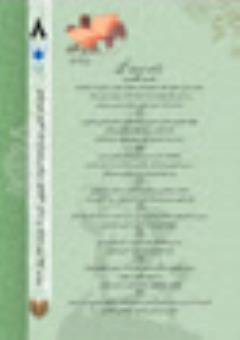Examining the Dual Postmodernism Indicators in the Novel "Hast Ya
Subject Areas : Comparative Literature Studies
Soheila Asadi
1
![]() ,
hesam ziaee
2
*
,
hossein Mansoorian Sorkhgaryeh
3
,
hesam ziaee
2
*
,
hossein Mansoorian Sorkhgaryeh
3
1 - PhD Candidate, Department of Persian Language and Literature, Qaemshahr Branch, Islamic Azad University, Qaemshahr, Iran.
2 - gaemshahr Islamic free universityAssistant Professor, Department of Persian Language and Literature, Qaemshahr Branch, Islamic Azad University, Qaemshahr, Iran. (Corresponding Author)
3 - * Assistant professor of the Persian language and literature, Islamic Azad university , Ghaemshahr branch.
Keywords: Postmodern, Novel, Narrative, Sara Salar, "Hast Ya Nist".,
Abstract :
Postmodernism is the third period in the history of human thought. In this period, which spans the end of the 19th century to today, the creation of reality replaces the discovery of reality. Many contemporary story writers in Iran have also written this story style under the influence of the works of the postmodern writers of the West. One of these writers is Sara Salar, who introduced her art as a post-modern writer in the novel "Hast Ya Nist" with elements such as denial of truth, skepticism, uncertainty, contradiction, giving originality to the reader's mind and passing the time while listing the postmodern elements in the novel or not. This research tries to provide a reasoned answer to this question:" Which postmodern elements did Sara Salar use more in this novel?" And what is her place among postmodern storytellers? In this research, the authors specifically defined the characteristics of postmodern stories and their categories using the analytical descriptive method, and the findings of the study showed that the change of perspective and uncertainty are the most important features of postmodernism in this novel.
References
Books
1. Beheshti, E, (2007). Story Factors, Tehran: Barg.
2. Biniyaz, F, (2013). An Introduction to fiction writing. Tehran: Afraz.
3. Cahoone, L. (2022). From Modernism to Postmodernism. Translated by AbdolKarim Rashidian, Tehran: Ney.
4. Jencks, C. (2019). The story of post-modernism: five decades of the ironic, iconic and critical in architecture. Translated by Ehsan Hanif, Tehran: Fekre No.
5. Karimi, F. (2019). Subject Analysis in Iran's Postmodern Fiction Literature. Tehran: Rozaneh.
6. Payandeh, H, (2003). Discourse of criticism. Tehran: Roozegar.
7. Salar, S. (2014). Hast ya Nist. Tehran: Cheshmeh.
8. Tadayoni, M. (2009). Postmodernism in Persian Contemporary Fiction. Tehran: Elm.
Articles
1. Abdali, A., safari. J., & Zaheri abdevand, E. (2022). Recitation of ancient poetry in the postmodern novel The Man of Everlasting Concern from Mohammad Ayoubi. Contemporary Persian Literature, 12(1), 3-26.
2. Dehghan Shiry, M. (2017). The Analysis of Postmodernist Elements in the Novel of Strophe-Poem for Young Poets. Research on Fictional Literature, 5(1), 15-40.
3. Golshiri, S. (2011). Post Modernism in Iran’s contemporary fiction (The study of post modernist features in Hooshang Golshiri’s works). The Journal of Epicliterature, 6(10), 242-278.
4. Horri, A. (2008). The cognitive narrative of the story with a look at Hooshang Golshiri's novel "Aeinehaye Dardar". Journal of Persian Language and Literature, 51(208), 1-25.
5. Khorasani, M., & Davoudi Moghadam, F. (2012). Stylistology of Postmodern Sonnet. Tehran: Sixth Literary Research Conference.
6. Koupa, F. (2013). Narrative timing based on Gerard Genette theory in “I might have been lost”. Fiction studies, 1(2), 5-17.
7. Lorestani, Z., & Ghanbari, A. (2021). Postmodernism in Belgias Soleymani` fictions. Research Journal of Literacy Schools, 5(13), 7-29.
8. Saadatynia, Z., Ahmadi, M., & Fooladi, R. (2023). A Comparative Study of Absurdism in Western and Iranian Fiction (Based on the Works of Kafka, Camus, Hedayat and Sadeghi). Literary-philosophical researches, 1(1), 1-24.
9. Watankhah, Z., Seyed Sadeghi, S. M., & Parhizkari, M. (2022). Discourse and postmodern elements in the poems of Seyed Mehdi Mousavi. Jostarnameh Journal of comparative Literature Studies, 6(19), 130-154.
10. Yaghmaei, G., Kamaladdini, S. M. B., & sadeghzadeh, M. (2018). The effect of modernity on modernization of Persian (Iranian) Poetry in 1950s and 1960s. Jostarnameh Journal of comparative Literature Studies, 2(5), 103-134.

